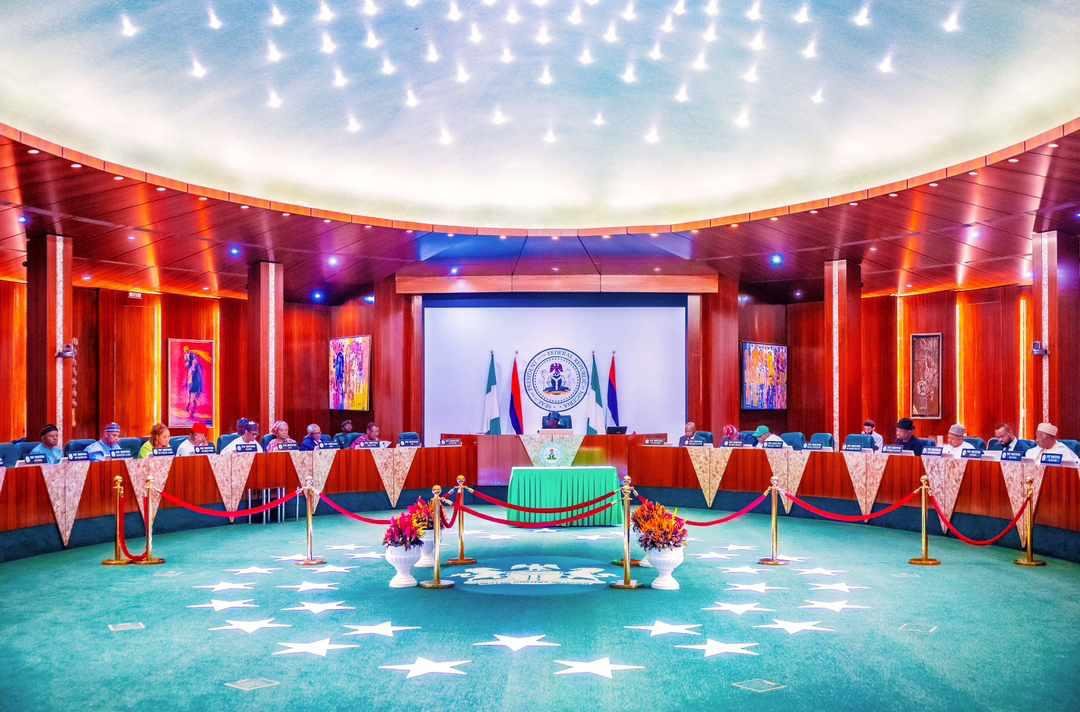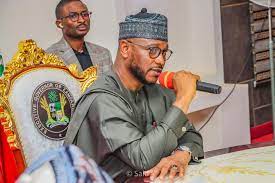The quiet posture of the members of President Bola Tinubu’s cabinet and other top officials in his government is not golden. The federal ministers overseeing various ministries and department as well as agencies owe the citizens a responsibility to explain the administration’s policies and centerpiece, not only when the people ask for it. Free and openness of enlightenment of the activities of any administration or regime are essential parts of good governance.
Evidently, the reverse is what obtains within the Tinubu government.
Sadly, many of the officials have earned the unenviable tag of ‘clueless’ or ‘colourless’ or both. Yet, unfortunately many are unknown. They work as federal ministers and paid with the taxpayers’ money. Take for examples; ministry of agriculture and food security, ministry of police affairs, ministry of livestock development, ministry of science and innovation. Who is in charge of each of these ministries? The question keeps recurring any time an assessment of their scorecards is to be conducted. Talking about food security, Nigerians are wallowing in acute hunger amidst abundance of natural endowment waiting for the agriculture ministry to tap.
If there is a secret oath that the officials should remain silent ‘for ever’ Nigerians deserve to know. Because, at the end of their appointments, each would give account of himself. But no doubt the silence among the officials continues to hinder transparency and accountability, raising serious concerns about the state of governance and eroding public trust in democratic institutions. Korede Abdullah, Southwest correspondent of Africa Health Report, critically examines why the officials are not speaking.
A Nation Teetering on the Edge
President Tinubu took over a nation teetering on the edge, left behind by Muhammadu Buhari with deepening economic woes and a spiralling security crisis. Nigerians, clinging to the promise of his Renewed Hope agenda, eagerly awaited a dynamic team that would deliver swift, transformative change.
Nearly two years later, disappointment looms large. Africa Health Report findings show that out of the 45 ministers appointed, only a few have shown any sign of progress, while the majority remain invisible and unaccountable.
Key sectors like power, defence, agriculture, and science are stagnating under their watch, leaving citizens questioning the direction of the country and the effectiveness of its leadership.
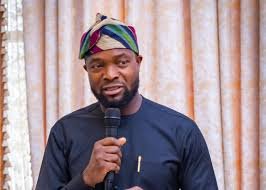
Culture of Silence
From federal Ministries to other government agencies, the reluctance of officials to openly communicate with the public or provide timely updates on government operations has become a defining feature of the country’s political landscape.
This silence not only stifles civic engagement but also undermines the principle of open governance that is crucial for a functioning democracy.
Despite mounting allegations of corruption, financial mismanagement, and abuse of office, many government officials have become increasingly notorious for evading public scrutiny.
Instead of offering explanations or responding to calls for accountability, they often withhold critical information, dodge questions from journalists, and sidestep investigative inquiries. Press conferences are frequently avoided, public records are difficult to access, and official statements—when released—are often vague or non-committal.
This evasiveness has cultivated an environment where misconduct goes unchallenged and the line between legitimate governance and impunity grows increasingly blurred.
This widespread reluctance to speak out is rooted in a combination of political pressure, fear of professional or personal consequences, and a long-standing system of bureaucratic secrecy. Whistleblowers within the government often face intimidation, dismissal, or worse, discouraging others from coming forward with the truth.
As a result, the public grows increasingly skeptical of official narratives and disillusioned with leadership at all levels. The culture of silence not only allows corruption to flourish unchecked but also prevents meaningful reforms, stalling progress and making it exceptionally difficult to address Nigeria’s most pressing national challenges—from poverty and insecurity to infrastructure and education.
Silence Breeds Distrust
Some political analysts who spoke with Africa Health Report (AHR), are of the view that a pervasive culture of silence has continued to erode public trust in government institutions.
“With officials often reluctant to speak out or challenge the status quo, the public is left in the dark, fueling widespread skepticism of official narratives”, said a Lagos-based public affairs analyst, Dr Oluwadare Dauda.
He added, “This silence—whether rooted in fear, complicity, or political loyalty—has created an environment where accountability is scarce and leadership is met with growing disillusionment.”
As citizens seek transparency, they are instead met with half-truths and evasion, deepening the divide between the governed and those in power.
Another responder, Mr Sule Mark Abubakar, told our correspondent that this entrenched silence has more than just political consequences.
According to him, “It has become a major stumbling block to national development. Corruption festers unchecked, reforms are watered down or abandoned altogether, and critical issues like poverty, insecurity, infrastructure decay, and failing education systems remain unresolved.”
Analysts say without open dialogue and courageous leadership willing to confront systemic problems, progress remains painfully slow, leaving millions of Nigerians to grapple with the consequences of a system that chooses silence over solutions.
When Loyalty Meets the Axe
Ahead of President Bola Tinubu’s cabinet reshuffle in October last year, tension simmered among Nigerian ministers following a warning from presidential aide Bayo Onanuga that underperformers could be dismissed.
Fueling the anxiety was a rigorous performance evaluation led by Hadiza Bala Usman, known for her no-nonsense approach from her time at the Nigeria Ports Authority. Even intense lobbying efforts couldn’t sway Usman, whose report was compiled just before Tinubu’s UK vacation.
The looming reshuffle revived long-standing criticism that Tinubu’s cabinet was filled more by political loyalty than competence. Many Nigerians had expected a technocrat-driven government, but as reshuffle fears grew, the spotlight returned to how appointments were made—and whether performance or patronage would ultimately decide ministers’ fates.
Tinubu’s Cabinet Reshuffle, Tough Test
There was growing public discontent over the Ministers’ lackluster performances last year which prompted President Bola Tinubu to finalize a major cabinet reshuffle with the Senate confirming seven new ministers, following an October 23, 2024, statement announcing the dismissal of five ministers and the reassignment of ten others.
The shake-up was long-anticipated, aimed at breathing new life into the administration amid growing criticism.
Key changes include the renaming of the Ministry of Niger Delta Development to the Ministry of Regional Development, the dissolution of the Ministry of Sports, and the merger of Tourism with Arts and Culture.
Seen as a strategic move to reenergize governance, the reshuffle comes as President Tinubu faces increasing scrutiny over his performance since assuming office.
With an internal evaluation report guiding the changes, the President was expected to make further decisions that could redefine his leadership style and political legacy.
However, six months after the reshuffle, the public remains disillusioned. Despite initial optimism sparked by Tinubu’s sweeping reforms—including subsidy cuts and a currency devaluation aimed at stabilizing Nigeria’s economy—the measures have backfired, driving inflation to 32.70% and deepening a cost-of-living crisis.
Political observers believe that the cabinet restructuring has never had any effect on the masses.
“I would like to say without any fear of contradiction that the so-called cabinet restructuring and reshuffle has not help addressing inefficiencies that have slowed government operations and reform implementation.”, echoed Dr Dauda.
Meanwhile Africa Health Report (AHR) findings show that both the recently appointed ministers and the existing ones have remained largely absent from public discourse, offering little accountability or visibility in navigating the nation through economic turmoil….
Adelabu: Powerless Promises
Despite inheriting a broken system, Power Minister Bayo Adelabu’s tenure has only deepened Nigeria’s electricity woes.
From persistent grid collapses and unresolved metering issues to rising debts and unconsumed power bills, Nigerians have seen the worst electricity supply in recent memory.
While Adelabu blames unpaid debts to gas suppliers, citizens—still paying inflated bills—are left in the dark, both literally and figuratively.
The government’s ambitious goal of hitting 10,000 megawatts by 2028 seems distant, with Adelabu’s claim of reaching 5,000 megawatts yet to reflect in actual supply.
Lights Out, Hopes Dim
The national grid has collapsed twice already this year, hinting at a repeat of 2024’s alarming 12 collapses. Meanwhile, millions of Nigerians still endure the burden of estimated billing due to unresolved metering challenges—fueling accusations of extortion and lack of transparency.
Adelabu’s recent claim that 40% of Nigerians now enjoy 20 hours of power daily has sparked widespread disbelief, as erratic supply and blackouts remain the norm.
Compounding public frustration is a hike in electricity tariffs, introduced with little to no stakeholder consultation. Critics argue the move punishes consumers without addressing the root causes of the sector’s persistent inefficiencies.
Abubakar Kyari, Agric Minister in Slumber
Nigeria is grappling with a severe food crisis, exacerbated by the removal of fuel subsidies and the naira’s plummeting value, leading to skyrocketing food prices.
The Nigerian Bureau of Statistics reports a 32.74% average annual food inflation rate, a 9.52% increase from April 2023.
Despite this dire situation, Minister of Agriculture and Food Security Abubakar Kyari’s efforts seem insufficient. Kyari’s initiatives, such as distributing improved seeds and fertilizers to farmers and launching dry-season farming across 15 states, have shown minimal impact.
His recent plans to boost food security include importing 250,000 metric tonnes of wheat and maize and introducing a 150-day duty-free import window for specific food commodities.
Kyari’s ministry has outlined five major initiatives for 2025, focusing on enhanced support for farmers, eco-friendly farming practices, improved food distribution systems, deployment of tractors and heavy equipment, and smart agriculture.
While these plans aim to strengthen the agricultural sector, many Nigerians remain skeptical, expecting more energy and pace in program implementation and concrete steps toward mechanized agriculture. The minister’s slow response has led some to criticize his leadership, feeling that meaningful change is overdue.
Bello Matawalle, a Spineless Minister
Bello Matawalle, Minister of State (Defense) is another member of the cabinet whose performances have been lackluster.
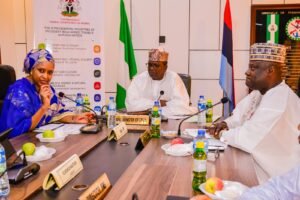
According to sources who disclosed to Africa Health Report (AHR), it was President Tinubu who swiftly quashed Matawalle’s request to jet off to Egypt when the reshuffle was drawing near last year, where his wife and children awaited.
The president instead directed him to tackle the pressing insecurity issues plaguing Zamfara and Sokoto States.
Zamfara State and some other states in the north, especially Plateau, have unfortunately become synonymous with banditry and senseless killings, despite having the Minister of State for Defense, Bello Matawalle, hailing from the state.
This paradox has raised questions about the effectiveness of the government’s response to the crisis. The state’s geographical location, with its porous borders and vast rural areas, has also contributed to its vulnerability to banditry.
Matawalle’s denied request jet out was then seen by keen political watchers as a stark reminder that the nation’s interests take precedence over personal concerns.
Although the minister managed to retain his position during the reshuffle tsunami, his visibility as Minister of State for Defense has noticeably declined, even as the country grapples with significant security challenges.
Gbenga Oyetola: Drifting in Deep Waters
Despite being strategically positioned to tap into Nigeria’s vast marine potential and drive economic diversification, the Ministry of Marine and Blue Economy under Gboyega Oyetola has been largely underwhelming.
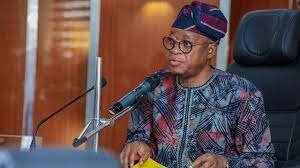
Tasked with overseeing heavyweight agencies like NIMASA, NPA, NIWA, and the Maritime Academy, the ministry was expected to launch impactful policies and reforms to reduce dependence on oil. However, progress has been sluggish, and its potential remains largely untapped.
Critics argue that with Oyetola’s governance experience and background in the insurance sector, expectations for swift, strategic moves were not out of place.
Yet, many say the ministry exists only in name, with little to no visible achievements since its creation.
The urgency to shift Nigeria towards a more sustainable and diversified economy is met with bureaucratic inertia, leaving stakeholders frustrated and doubtful of the ministry’s true direction.
Uche Nnaji: Innovation on Paper, Inaction in Practice
Despite overseeing Nigeria’s gateway to a future-driven economy, Minister Uche Nnaji of Innovation, Science, and Technology has remained largely invisible. The nation continues to trail behind its global peers in scientific and technological strides—not because of a lack of talent, but due to weak strategic leadership and minimal impactful action from the top.
Some observers who spoke with Africa Health Report (AHR) argued that the ministry under Nnaji functions more in title than in practice, failing to create meaningful progress.
“A focused STEM policy and actionable initiatives could transform Nigeria’s innovation landscape, spur job creation, and tackle major societal challenges—but only if leadership shifts from passive presence to proactive purpose. Unfortunately, we have a Minister who is suffering from a poverty of imagination”, said Mallam Muniru Subair, a mechanical engineer.
Wale Edun: Minister of Finance and Coordinating Economy

Wale Edun, despite his impressive résumé as a seasoned economist and former Lagos State commissioner, has been labeled one of the worst-performing ministers in President Bola Tinubu’s cabinet over the past year.
Public affairs analyst Jide Ojo voiced the sentiment shared by many Nigerians, who feel the economic hardship that followed the removal of fuel subsidy has not been alleviated by Edun’s policies.
Although Tinubu continues to express confidence in Edun, citizens question the results of his economic leadership so far.
Abubakar Atiku Bagudu: Minister of Budget and National Planning
Abubakar Atiku Bagudu, the Minister of Budget and National Planning, has come under fire for what many describe as an underwhelming performance in President Bola Tinubu’s administration.
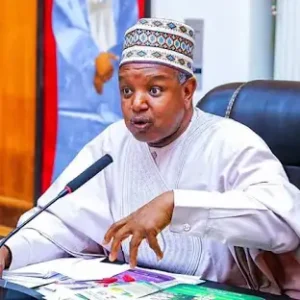
Despite his experience as a former governor and senator, Bagudu remains largely absent from public discourse, rarely engaging Nigerians on pressing government policies.
His low visibility has led to concerns that he is disconnected from the realities facing citizens and the responsibilities of his office.
Compounding this perception is Bagudu’s controversial past, marred by allegations of involvement in the looting and laundering of public funds during the regime of late General Sani Abacha.
Although he has not been convicted, the lingering accusations continue to cast a shadow over his credibility. Analysts argue that his time in office has been marked by a lack of strategic direction and tangible results, particularly in the critical areas of national planning and budgeting.
Ibrahim Geidam: Minister of Police Affairs
Ibrahim Geidam, the Minister of Police Affairs and former governor of Yobe State, has come under increasing criticism for his passive role in one of Nigeria’s most critical ministries.
Since his appointment, Geidam has remained noticeably absent from public engagements and policy dialogues, raising concerns about his commitment to addressing the numerous challenges plaguing the Nigerian Police Force, including corruption, inadequate funding, poor training, and widespread human rights abuses.
Observers argue that at a time when citizens are demanding urgent police reforms and improved security, the minister’s silence and lack of a visible action plan reflect a failure of leadership.
His low profile and lack of policy direction have led many to question whether he possesses the will or capacity to drive much-needed reforms in the country’s security architecture.
Abbas Lawal: Minister of Environment
Abbas Lawal, who stepped into the role of Minister of Environment following the rejection of Nasir El-Rufai by the Senate, has so far failed to make a meaningful impact in a ministry that plays a crucial role in addressing one of the most pressing global issues—climate change.
Despite the increasing urgency for countries to engage in climate action, promote sustainability, and respond to environmental degradation, Lawal has maintained a low profile, with no significant policies, programs, or public engagements to his name.
His absence from major environmental forums and his silence on critical issues such as deforestation, flooding, pollution, and Nigeria’s commitment to global climate goals have drawn criticism from experts and environmental advocates.
Many argue that his passive approach has left Nigeria lagging behind in both local environmental reforms and international cooperation, at a time when strong leadership in the sector is urgently needed.
NOA: Voice of the Nation Gone Silent
Mallam Issa Onilu, the Director-General of the National Orientation Agency (NOA), has come under sharp criticism for presiding over what many describe as a dormant institution.
Tasked with promoting national unity, civic values, and public understanding of government policies, the NOA has become virtually invisible under his leadership, with little to no presence in national conversations or grassroots engagement.
Critics lament that at a time when misinformation is rampant and national cohesion is more important than ever, the agency’s silence is deafening.
Many Nigerians are unaware of its existence, let alone its mandate, prompting calls for either a major overhaul or a change in leadership to revive its relevance and reconnect the government with the people.
Toward Transparency and Inclusivity
In response to widespread criticism that government policies are often secretive and that officials are inaccessible to the public, the Presidency announced new guidelines on March 5 to improve citizen engagement.
“The Federal Government is committed to transparency, inclusivity, and citizen participation in governance,” the statement affirmed.
These conditions, outlined by the Central Delivery Coordination Unit (CDCU) under the leadership of Hadiza Bala Usman, aim to turn the quarterly Stakeholder and Citizens Engagement Meetings into authentic platforms for dialogue.
This initiative aligns with President Bola Tinubu’s directive for ministers to frequently communicate policies, initiatives, and programmes to the public to foster greater understanding.
High-Level Interactions and Mandatory Feedback Loops
According to the new mandate, every ministry must host at least one engagement meeting per quarter, personally led by the minister, with participation from the Permanent Secretary and top officials.
The CDCU underscored the need for these meetings to be high-level, two-way interactions, not mere information sessions. “This deliverable is to bridge the gap between the government and citizens… and ensure active citizen participation,” the statement said.
Crucially, these sessions are designed to collect real-time feedback from civil society organisations, professional bodies, the media, and everyday citizens, with that feedback directly influencing policy adjustments. The feedback process, it stressed, “remains a crucial component of these sessions.”
Ensuring Accountability and Real Engagement
To guarantee transparency, the CDCU requires ministries to submit evidence of engagement, including stakeholder invitations, attendance records, presentation copies, and detailed reports of the discussions.
Ministries must also document the feedback received and demonstrate how it informed policy decisions. The government emphasised that superficial encounters—such as media interviews or investor visits—do not meet the criteria. Instead, interactions must be “structured, inclusive, and participatory.”
As the Presidency concluded, these new guidelines serve to “reinforce its commitment to citizen-centric governance,” ensuring that public voices are not only heard but also help shape national policies.

